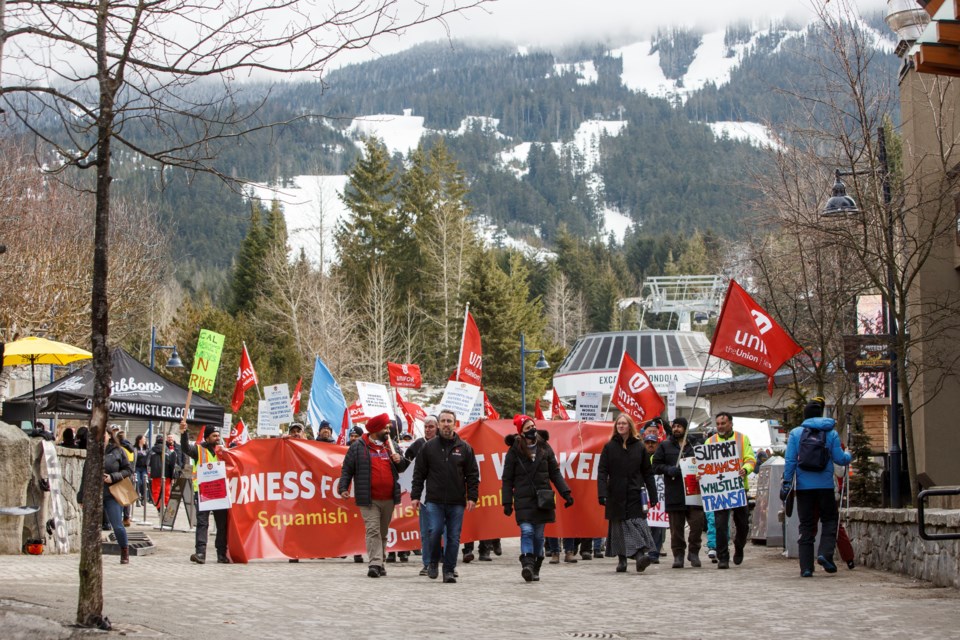The union representing striking transit workers across the Sea to Sky turned down the employer's offer to go to arbitration this week after Pacific Western Transportation (PWT) reportedly withdrew its previous settlement offer.
In a statement, the Alberta-based company contracted by BC Transit to deliver transit in the corridor said it had reached out to Unifor on March 22 to see if the union would agree to enter a binding interest arbitration with a third-party arbitrator. Two days later, Unifor indicated they would not agree to arbitration.
"Whistler Transit Ltd. and Diversified Transportation are frustrated with the Union’s response, as we believe we are doing everything reasonably possible to provide a fair and reasonable settlement to ensure transit services can be returned to the communities in the Sea-to-Sky region," PWT's statement went on. PWT represents the employers, Whistler Transit and Diversified Transportation in Squamish.
But according to Unifor's western regional director Gavin McGarrigle, PWT is only telling part of the story.
"What they didn’t tell the public is they withdrew the offer they made on March 17, and of course these were the offers that the bargaining committee was prepared to recommend, subject to the one outstanding item on wage parity," he said in an interview Friday. "Under the right circumstances, binding arbitration can move things forward where there’s good faith, but what they’ve done is try to stack the deck to get the result they want."
Unifor has consistently called for wage parity with transit workers in Vancouver, where, earlier this month, they voted to ratify a one-year contract extension that included a three-per-cent wage increase for transit operators and a five-per-cent hike for skilled tradespeople, further widening the gap between transit employees in the Sea to Sky.
The offer that was ultimately revoked by PWT this week included benefits for all employees paid entirely by the employer, as well a commitment to adopt Unifor's CAAT pension plan for all workers. The private contractor also offered fully retroactive wage increases in each year of the proposed deal, as well as a large signing bonus—but it doesn't appear ready to budge on wage parity.
"At the end of the day, nobody has made an economic argument as to why there should be such a wage disparity. All we ask for is a roadmap to deal with that and it’s been rejected time and time again," McGarrigle added.
Since local transit workers began their strike on Jan. 29, the two sides have spent very little time at the bargaining table. The parties met for the first time during the job action on Feb. 24, and a day later, abruptly cut off talks. Although progress was made once negotiations resumed for the second time on March 16, they stalled again after two lengthy days of bargaining.
As previously reported in Pique, the parties haven't met with an appointed mediator since Jan. 11. Mediator Dave Schaub was first brought in by the Labour Relations Board in September.
There are no future plans for the two sides to meet.





